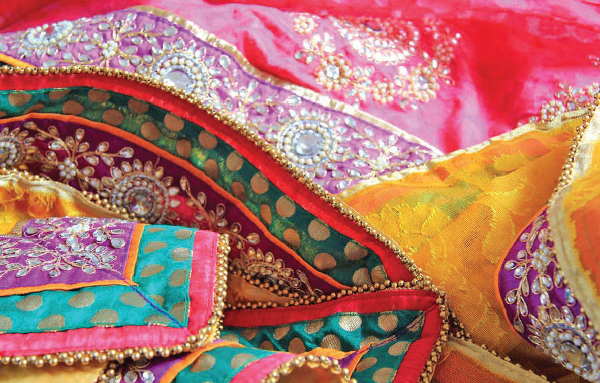Noted designer Sabayasachi recently triggered a nation-wide outrage when he stated that Indian women who don’t know how to wear a sari should be ashamed as the sari was a part of Indian culture. While the designer has since apologised for his comments, the debate continues

Women not only from the Indian sub-continent but also across the world, savour the yards of cloth designed and draped in different styles and fashion. The sari is represented by many as the national dress of India on many international grounds, and many women of different age groups treasure this outfit which may be sometimes inherited from past generations.
And while Sabayasachi, a brand synonymous to splendour and richness is noted for his take on ethnic wear, a statement made by him while addressing Indian students at the Harvard India Conference, disappointed millions of his fans and led to an uproar on the social networking sites. The Indian designer critised the younger generation of Indian women for not wearing saris and giving preference to western outfits. Responding to the difficulties women face draping a sari, he said, “I think, if you tell me that you do not know how to wear a sari, I would say shame on you.It’s a part of your culture, you need to stand up for it.” He also added that the outfit is the most wonderful dress in the world which is globally admired and identifies Indian women with it.
Many women drape the sari on a daily basis, either as a routine, a choice or due to their customs. While some complain over the difficulties in wearing one owing to their hectic lifestyles, some easily carry the cloth gracefully doing their chores round the clock. Ultimately, a dress or an outfit is a choice depending on their routines and comforts. Thus, such a comment shocked women who enjoy wearing a sari everyday. And many women were outraged on the social networking sites. Who needs a man or anybody to tell a women what to wear or not to wear? While a few supported the comment made by Sabyasachi, many did not accept it tagging him as a ‘male chauvinist’ and ‘dictator’ on Twitter.
After the reaction of Twitterati, Sabayasachi in an open letter apologised for the comment saying, “Allow me to sincerely apologise for the words that I used while answering at a conference impromptu questions at a conference at Harvard. I am sorry that I used the interpreted as misogynistic, patriarchal and non-inclusive - this was certainly not my intention.” He also mentioned in his long apology letter that during the course of his career he has often encountered a bias from people towards wearing the sari and this was “what triggered a lot of pent-up frustration that I have accrued for that segment of our society which constantly expresses disdain for this piece of Indian heritage.” “It is this frustration that I unfortunately generalised to Indian women in response to the question, when I now see that I should have framed it as a call to stop shaming the sari and whomever chooses to wear it. I am passionate about textiles and our heritage, and I am sorry that in the heat of that moment, I allowed this passion to be misplaced. I take full responsibility for this,” he added.